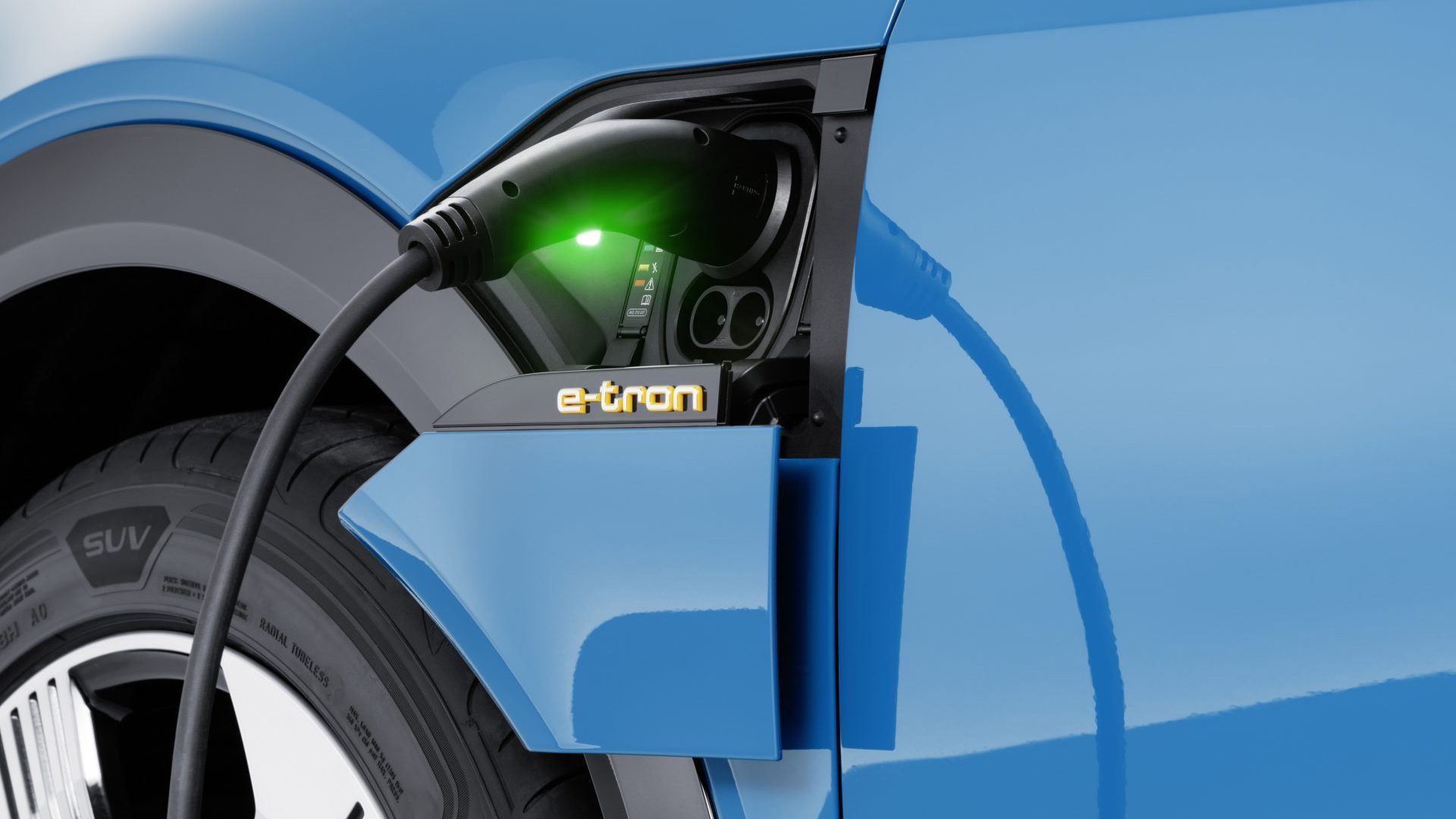

Starting in 2020, Audi’s electric vehicles will be capable of charging 80 percent in 12 minutes or less.
Audi e-Tron’s Senior Marketing Manager Johannes Eckstein reportedly confirmed the plan to Autocar, specifying the first Audi product with such capabilities to be its e-Tron GT, whose concept will debut at the Los Angeles Auto Show at the end of November.
The Audi e-Tron GT will share a platform with the Porsche Taycan, which Porsche says will be capable of using a 350-kilowatt fast charger to fill its battery to 80 percent in 15 minutes, good for about 249 miles of range. For context, Audi’s e-Tron electric crossover (coming in early 2019) is claimed to recharge its battery to capacity in 30 minutes on a 150 kW feed.
Both the 150 kW and 350 kW systems will be part of the Ionity network, an international venture to develop and deploy a standard fast-charging system across Europe, with a similar program ongoing in North America by Electrify America and Electrify Canada. No current EVs have batteries capable of charging on 350 kW without sustaining damage, though Porsche, Audi, and presumably others of the Volkswagen Auto Group will have next-gen batteries capable of utilizing this higher wattage. Audi has not yet returned The Drive‘s email regarding whether all of its electric vehicles will use 350 kW charging as of 2020.
Charging infrastructure is critical to addressing range anxiety, as many consumers imagine themselves stranded while waiting for their electric vehicle to charge. Powerful charging is of exceptional importance to Audi, however, as our numbers show that the Audi e-Tron will at launch be the least-efficient electric passenger vehicle on the market, its gargantuan 95 kilowatt-hour battery good for just 249 miles of range according to Worldwide harmonized Light vehicles Test. For reference, the downmarket Kia Niro EV achieved significantly more range (301 miles) in WLTP trials, and did so with a battery hardly two-thirds the capacity of the e-Tron’s, at just 64 kWh.
Nevertheless, our math shows that investment into strong fast-charging systems will take the edge off of immature powertrain technology, allowing the seemingly under-developed e-Tron to travel at a faster average rate of travel than its competitors when the driver alternates between fast-charging and depletion of the battery. If Audi’s (and by extension, VW AG’s) competitors figure out competitive fast-charging solutions of their own, it could level the playing field again, and favor efficiency over infrastructure.
It will be interesting to see over the next several years whether those that invested in powertrain tech or those that prioritized charging infrastructure come out on top. Presumably, with diminishing returns in both fields, almost every automaker will have to walk both paths down the line.